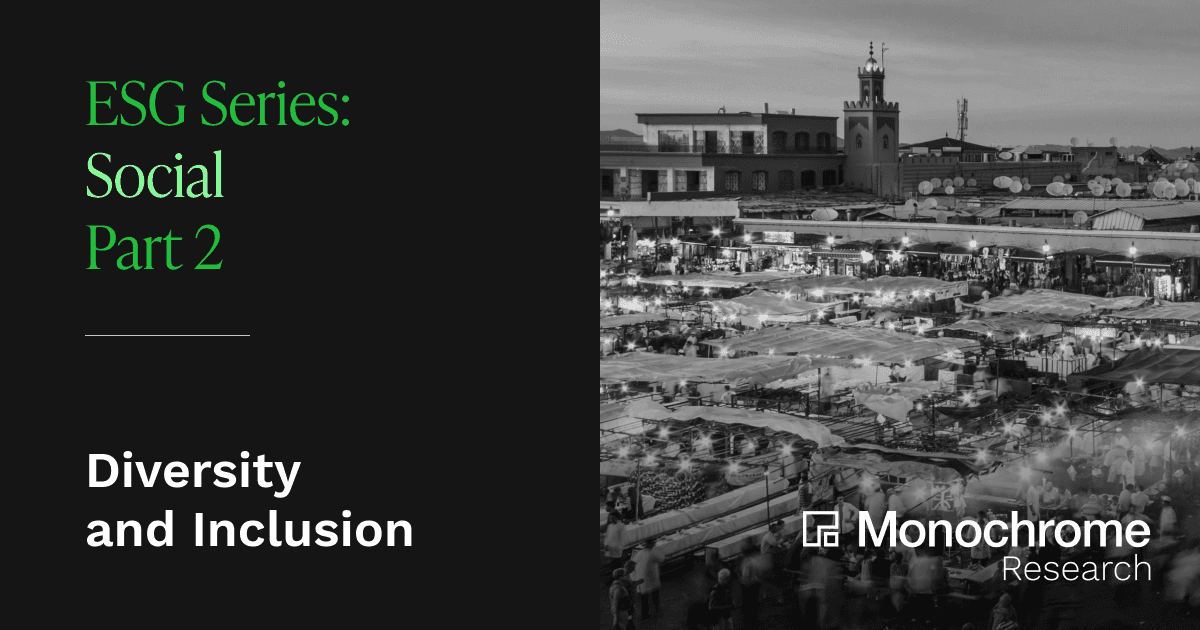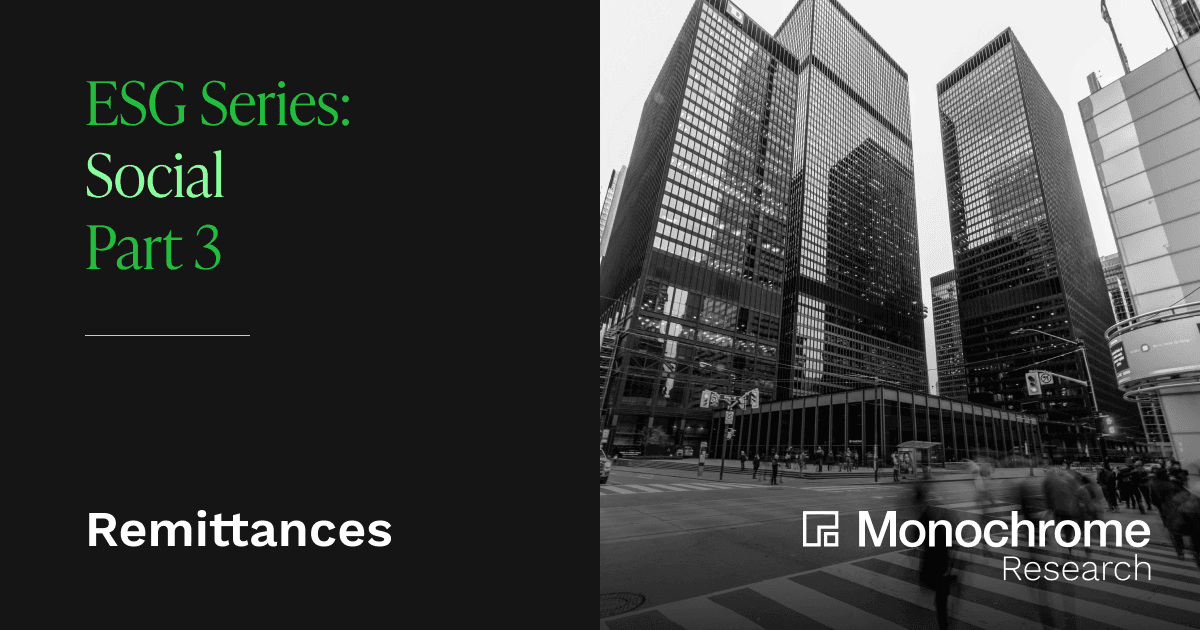Bitcoin ESG Series

ESG Series - Environmental Part 1: Bitcoin and the Environment
In this five-part series on Bitcoin and the environment, we aim to deliver a thorough overview and context of Bitcoin’s energy use and environmental impact. First, one must understand what drives Bitcoin’s energy use. From there we provide an overview of the current state of the Bitcoin Network from an energy consumption point of view, alongside important industry trends and metrics.

ESG Series - Social Part 1: Bitcoin’s Social Impact
It is often claimed that Bitcoin offers little use to a society that traditionally operates using fiat currency. Others maintain the perspective that Bitcoin is solely an investment tool used to generate capital gains or diversify a portfolio. Whilst the latter perspective may be valid, it is limited. Bitcoin can be viewed as a highly disruptive technology which may have the potential to evolve our financial system.

ESG Series - Environmental Part 2: Drivers of Bitcoin Energy Use
In this second instalment of the E in ESG series from Monochrome Research, we explain Bitcoin’s Proof-of-Work consensus mechanism, the source of its power consumption. An explanation of both endogenous and exogenous incentives for Bitcoin miners will also be given, and a breakdown of the Bitcoin mining industry’s position as a near-perfectly competitive market will be analysed.

ESG Series - Social Part 2: Diversity and Inclusion
It can be challenging to reimagine the current financial system. However, whilst most of us will continue to have access to and use traditional banking systems in the foreseeable future, Bitcoin may play a more significant role for the 31% of adults globally that remain unbanked and underbanked under the status quo.

ESG Series - Environmental Part 3: State of The Network
This is the third instalment of Monochrome Research’s E in ESG series and will discuss the state of the Bitcoin Mining network. Topics to be explored in this report are the current state of mining hardware, and industry-wide electricity and energy use, and emissions.

ESG Series - Social Part 3: Remittances
One of the most socially compelling use-cases for Bitcoin is its potential to transform the remittance market, which involves the payment of money from one party to another, usually across borders. Whilst the cost of remittances has trended gradually downward, it is still relatively high compared to domestic bank transfer fees, particularly for smaller transfers of money.

ESG Series - Environmental Part 4: Energy, Electricity and Emissions
In this piece, we will discuss the relationship between energy, electricity and emissions, and why the distinction is necessary to make. We will show Bitcoin’s current electricity mix, and what that means in regards to energy use and emissions in a global context.

ESG Series - Social Part 4: Foreign Aid
This piece will discuss the legacy global foreign aid system and the challenges faced in traditional foreign aid. We then demonstrate how Bitcoin has dramatically reduced friction in foreign aid with a case study on The Ukrainian Government’s “Aid for Ukraine” initiative, to use bitcoin and other crypto-assets to raise funds in a friction-free way.

ESG Series - Environmental Part 5: Bitcoin as a Driver of Energy Innovation & Series Conclusion
As with most things related to analysing Bitcoin, much of the data that was presented in the first four parts of the series has changed. Luckily, we took a first-principles approach, where we illustrated how Bitcoin’s power-draw (measured in GW) can be calculated by anyone, by simply multiplying the network hashrate by the average network efficiency.

ESG Series - Social Part 5: Inflation & Series Conclusion
Conceived in the wake of the 2008 global financial crisis, Bitcoin was created as an alternative to central bank-issued currencies. Years later, and the case for Bitcoin as a monetary rival has been furthered by concerns of high inflation in many smaller or less developed countries, which is devaluing citizens’ savings as the price of staple goods rise.

ESG Series - Governance Part 1: Bitcoin and Governance
Oftentimes within the Environmental-Social-Governance (ESG) framework, Governance can take a back seat to the Environmental and Social elements because they are seen as having farther reaching or more relevant impacts. On the other hand, some of the biggest disasters in human history, such as the Chernobyl Nuclear Accident, can be purely attributed to failures in governance. In general terms, governance refers to the process of how decisions are made and implemented.

ESG Series - Governance Part 2: How Poor Governance Leads to Poor Outcomes
Since Bitcoin’s inception in 2008, the interest in Bitcoin and other digital currencies has grown significantly. Between 2010 which saw the very first exchange created which made it simpler to trade bitcoin, to the now arguably saturated marketplace for cryptocurrency exchanges, inadequate governance at cryptocurrency exchanges and other centralised crypto institutions has manifested in poor consumer outcomes.








